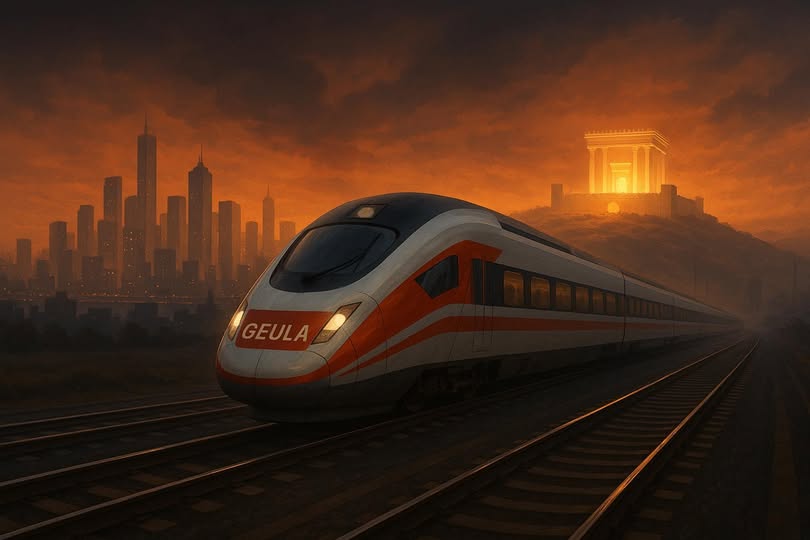It’s that time of the year again—the Three Weeks leading up to the 9th of the Hebrew month of Av. You may know the drill. Jews refrain from joyous celebrations, avoid meat and wine for a week, and, of course, there’s the big day. You know, the day Jews fast, sit on the floor, and mourn because our Holy Temple was destroyed 1,955 years ago. That day. A real downer. It’s on the Jewish calendar, and our ancestors have commemorated it for thousands of years. But don’t despair—soon it’ll be over, and we’ll slip right back into “normal life.” Sports events, music concerts, water parks, hamburgers, and fine kosher wine—life as usual.
It’s just one of those rituals we do to show God we care… right?
But do we? Is this just a week of fasting, prayer, and empty rituals so we can get on with our lives? Or is it possible that our lives are completely hollow without a Holy Temple? Perhaps our spiritual existence is akin to a body without a soul, devoid of God’s presence. The problem is, we don’t even realize what we’re missing.
1,955 years is a long time.
Even mourning for a close family member is limited to a year, not two millennia! Who can still feel a loss for something so far removed from our daily reality? And yet, that’s precisely the challenge.
Maybe the real question is this: Why are we so scared to think about what could be?
We’re creatures of habit. Even 2,000 years of exile, persecution, pogroms, inquisitions, and holocausts have become familiar to us. We’ve learned to live with the pain. We’ve adapted to the wandering, to the uncertainty, to being spiritual nomads. It’s the world we know.
The very idea of changing this paradigm—of imagining a world where the Hebrew Bible is lived in its entirety, where all Jews are home in the land of Israel, where true peace reigns—feels almost threatening.
No wars? No corruption? No endless sports games to distract us? No scrolling through entertainment just to pass the time? What would we even do with ourselves?
Would life be… boring?
This is where we’ve gone wrong. We’ve been fed an image of the Messiah that’s closer to a genie than to the leader of a spiritual revolution. We were taught as kids:
• No money? Don’t worry—the Messiah will top up your bank account.
• No shidduch? He’s the ultimate matchmaker.
• Feeling sick? He’ll make us all healthy and happy.
And then? We’ll lie on some beach sipping cocktails?
Is that what we’ve been waiting for all this time?
We’ve confused personal redemption with national redemption. The Messiah isn’t coming to solve our petty problems. He’s coming to free us from the spiritual clutter, from the distractions, from the meaningless race of modern life. His role is to allow us to live fully as who we were meant to be: a nation dedicated to God’s purpose, illuminating the world with truth.
Sounds boring, you say?
Then we’ve forgotten what true joy feels like.
The Messianic era isn’t a drag—it’s the moment when the world will finally make sense. When God’s presence will be clear to all, and we’ll live with purpose, clarity, and connection.
But here’s the hard truth: We’ve lost track of what’s important. We can’t even fully grasp what we lost with the destruction of the Holy Temple. And getting it back won’t be easy. Like anything of real value, it will demand struggle and sacrifice.
God has kept us alive for a reason. Through exile, through suffering, through centuries of wandering, we’ve been carried to this moment in history—the end of days, which is closer than we think.
The question is: Are we ready?
Are we ready for a total transformation of the world? For a reality where God’s presence is the center of our lives?
Whether we’re ready or not, it’s coming. Like a train barreling down the tracks, unstoppable.
“Ready or not,” says the voice of history, “here I come.”




